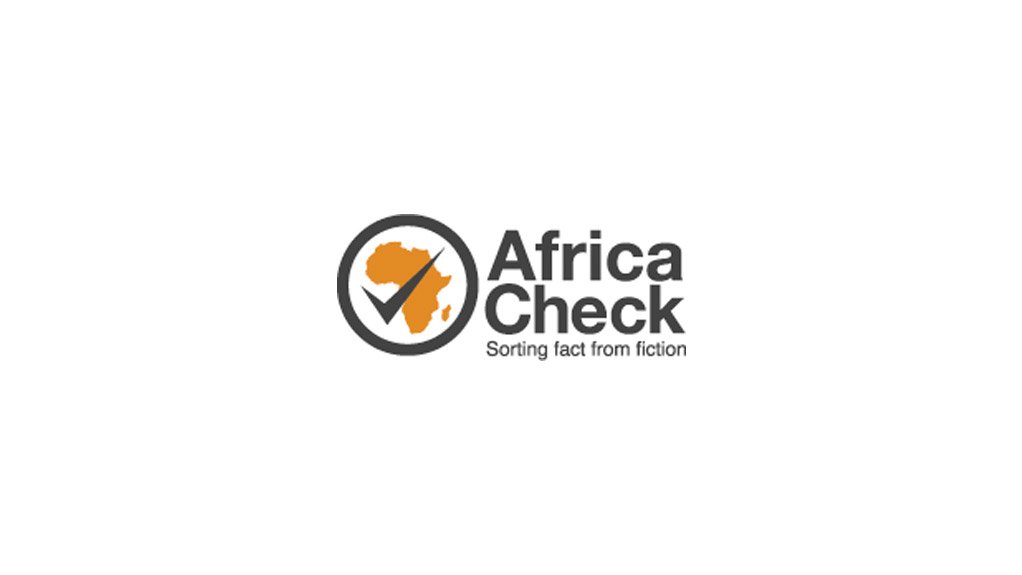The state is in southwest Nigeria and has a population of about 4.7-million.
Ahead of the 16 July 2022 election, four candidates took part in a debate organised by broadcast channel Arise News, one of two such debates, the other being on Channels TV.
They were governor Adegboyega Oyetola, who is seeking re-election on an All Progressives Congress ticket, Akin Ogunbiyi of the Accord Party, Goke Omigbodun of the Social Democratic Party and Labour Party’s Lasun Yusuf.
We looked at seven claims gleaned from the Arise News debate.
Adegboyega Oyetola - APC
In December 2021, Folorunsho Bamisayemi, the commissioner responsible for education in the state, announced the hiring of 1,000 new teachers for public schools.
More teachers would be recruited later, Bamisayemi said in a statement.
Training for the new teachers took place in January 2022.
Primary healthcare centres are the first port of call in Nigeria’s health system.
In March 2019, governor Oyetola announced the “revitalisation” of, among others, 332 primary healthcare centres.
Nine months later, the state claimed his administration had “fully completed” 131 health centres.
In July 2020, the governor’s chief press secretary, Ismail Omipidan, said 226 healthcare centres had been “rehabilitated and renovated”, as he pushed back at criticism from the opposition.
But Africa Check was unable to independently verify this.
In December 2021, an investigation by online newspaper HumAngle Media, cast significant doubt on the quality of the work, which it said was funded by a donor grant.
In the absence of independent data, we rate this claim as unproven.
The bill to establish the health insurance scheme was passed by the state assembly in October 2018. It was signed into law by Rauf Aregbesola, Oyetola’s predecessor, also from the APC.
However, its operations only started in April 2019, five months after Oyetola was sworn in.
In March 2022, Adeoye Adelakun, the chair of the Osun Health Insurance Agency, told journalists that 206,659 residents have registered for the scheme.
This is under 5% of the state’s estimated population as of 2016. Tanimola Akande, a professor of public health at the University of Ilorin, in the country’s Kwara state described this sign up rate as “very poor”.
“The global target is that everyone should have access to health services when needed without suffering financial hardship, so that coverage level is far away from the target,” he told Africa Check.
Akande gave some factors for low coverage.
“Generally, Nigerians have a very poor attitude about insurance,” he said. “It is not necessarily the problem of affordability since Nigerians can afford to buy uniform outfits for parties known as asoebi [a type of African dress], they should be able to afford health insurance, that's my own view.”
“Religion is also compounding the problem because people believe that they will not fall ill so why should they pay ahead for illness?”
Akin Ogunbiyi - Accord Party
According to a 2017 brochure on Nigeria’s mining sector by the ministry of mines and steel, nine minerals in possible commercial quantities can be found in Osun state.
These minerals are clay, granite, talc, dolomite, feldspar, quartz, limestone, mica, and gold.
According to data from the ministry of mines and steel, four mining leases and one small-scale mining lease are currently active in Osun state.
Of the five leases, two are operated by private companies, two by the Nigerian Mining Corporation and the last by Omoluabi Mineral Promotion Company Limited, a company owned by the state.
The state has entered other partnerships with Chinese firms, dating back to 2016, including in mining.
Goke Omigbodun - Social Democratic Party
Out-of-school children refers to the number of children and young people in the official age range, for the given level of education, who are not enrolled in pre-primary, primary, secondary or higher levels of education.
The 2016/17 Multiple Indicator Cluster Survey published by Unicef, the UN agency that focuses on the well-being of children, has data on out-of-school children.
The survey sampled more than 37 000 households nationally. Results show that in Osun, 26.9% of children within the primary school age bracket did not attend school. This dropped to 10.5% among children within the secondary school age bracket.
Besides the economic status of parents, there are other factors to blame for the problem of out-of-school children, according to Stephen Olubadewo.
He is a professor of educational administration at the Bayero University in Nigeria’s Kano state, with a focus on the relationship between parents’ economic status and the academic performance of students.
“Situations where facilities are inadequate or teachers are not well motivated also contribute to this problem,” he said. Both the government and the public had a role to play in changing this,Olubadewo added.
Osun state’s poverty rate was last measured at 8.52% in 2019. This is according to the National Bureau of Statistics.
The Nigeria Living Standard Survey was done to estimate living standards. It focused on household expenditures and poverty headcount ratios, sampling 22,110 households nationally over 12 months.
The survey identified the poor as those living below the poverty line of N137,430 a year or N376.5 a day. At the time, this translated to $353 per year or 97 US cents a day.
This has dropped to $313 per year or 90 US cents a day, based on the June 2022 official exchange rate, because of the devaluation of the naira.
In the survey, Osun state had the third-lowest poverty rate in the country.
This report was written by Africa Check., a non-partisan fact-checking organisation. View the original piece on their website.











